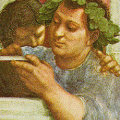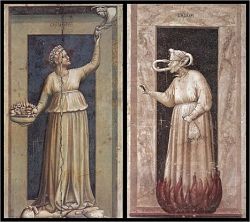333. Difficult to Be Good: Humanist Ethics
Humanists from Bruni and Valla to Pontano and Castiglione ask whether ancient ethical teachings can still help us learn how to live.
Themes:
• G. Bull (trans.), Baldesar Castiglione: Book of the Courtier (London: 1976).
• A.K. Hiett and M. Lorch (ed. and trans.), Lorenzo Valla, On Pleasure: De Voluptate (Of the True and the False Good) (New York: 1977).
---
• W.R. Albury, Castiglione’s Allegory: Veiled Policy in The Book of the Courtier (1528) (Farnham: 2014).
• T. Kircher, Living well in Renaissance Italy: the Virtues of Humanism and the Irony of Leon Battista Alberti (Tempe: 2012).
• D. Lines, “Aristotle’s Ethics in the Renaissance,” in J. Miller (ed.), The Reception of Aristotle’s Ethics (Cambridge: 2012), 171-93.
• D.A. Lines and S. Ebbersmeyer (eds), Rethinking Virtue, Reforming Society: New Directions in Renaissance Ethics, c. 1350–c. 1650 (Turnhout: 2013).
• M.P. Lorch, A Defense of Life: Lorenzo Valla’s Theory of Pleasure (Munich: 1985).
• M. Roick, Pontano’s Virtues: Aristotelian Moral and Political Thought in the Renaissance (London: 2017).







Comments
Add new comment